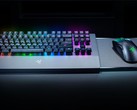Microsoft's Xbox One X might have raw muscle power but it is Sony that continues to rake in the numbers in terms of sales. Microsoft hopes to bounce back in the race with the next generation of the Xbox console family codenamed 'Scarlett'. While we've known about Scarlett for quite some time now, Windows Central reports that Scarlett will have two SKUs codenamed 'Anaconda' and 'Lockhart'. While these are scheduled for a 2020 launch, Microsoft will be launching the much talked about disc-less Xbox One SKU as early as January 2019.
Anaconda and Lockhart
2020 will see Microsoft launching two next-gen Xbox consoles in the Scarlett family — Anaconda and Lockhart. Anaconda or 'X2' is said to be the successor to the current gen Xbox One X and will feature cutting-edge hardware. The exact specs are not yet known but Anaconda might see the inclusion of an SSD instead of the conventional hard drive to reduce game load times. This means that Anaconda could also be potentially more expensive than the current-gen Xbox One X. On the other hand, Lockhart or 'S2' is expected to replace the Xbox One S and will feature similar hardware as the current Xbox One X with refinements under the hood. If this is true, both the Scarlett SKUs could indeed offer powerful gaming and entertainment experiences.
Disc-less Xbox One for 2019
We've reported about Microsoft's plans for a disc-less Xbox One and also about the possibility of it being powered by AMD's 'Picasso' APU. We're now getting to know that the disc-less Xbox One, which leverages Microsoft's Project xCloud and Project Brainwave, will release as early as January 2019 possibly during CES. AMD will also be unveiling their next generation Ryzen CPUs based on the Zen 2 architecture at CES so we might see a joint unveiling from both AMD and Microsoft for the disc-less Xbox One. Microsoft will is also expected to announce a disc-to-digital program that will allow gamers to convert their physical library to digital licenses via partners.
The addition of a disc-less SKU is more of a test to gauge market acceptance of a cloud-only gaming platform and whether Microsoft will introduce a disc-less Scarlett version in 2020 will depend on how well this SKU does.
GameCore
Microsoft has been trying to bring all its Stores and development toolset under a single unified platform ever since it launched Windows 10 three years ago and it looks like the Redmond-giant will take the next step forward by integrating GameCore as part of Windows Core OS that will be the foundation for PCs and Xbox consoles. Developers can use GameCore to unify game development across Windows 10 and Xbox Scarlett consoles. Also, Scarlett consoles will be fully backward compatible with all Xbox titles, right from the OG Xbox to the current generation ones. Details about specific features of GameCore are still scarce but we should be hearing more during GDC 2019 or Microsoft's Build 2019 conference.


































